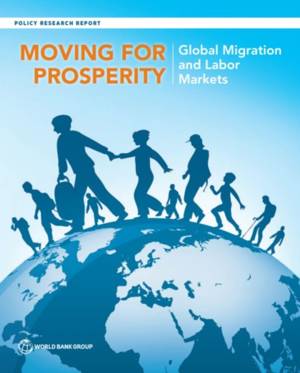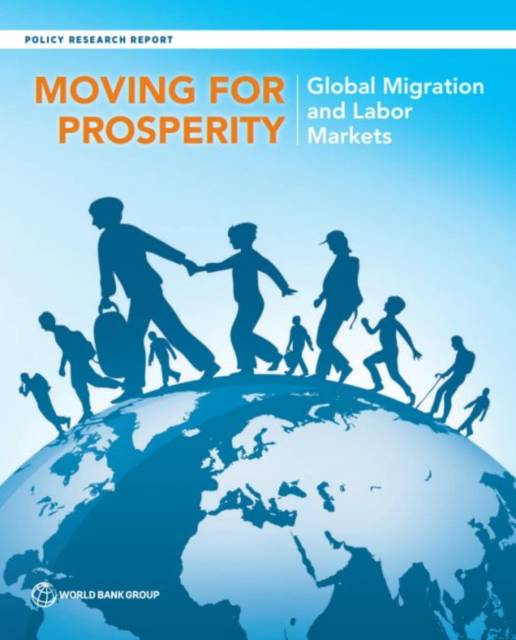
- Afhalen na 1 uur in een winkel met voorraad
- Gratis thuislevering in België vanaf € 30
- Ruim aanbod met 7 miljoen producten
- Afhalen na 1 uur in een winkel met voorraad
- Gratis thuislevering in België vanaf € 30
- Ruim aanbod met 7 miljoen producten
Zoeken
Omschrijving
Migration presents a stark policy dilemma. Research repeatedly confirms that migrants, their families back home, and the countries that welcome them experience large economic and social gains. Easing immigration restrictions is one of the most effective tools for ending poverty and sharing prosperity across the globe. Yet, we see widespread opposition in destination countries, where migrants are depicted as the primary cause of many of their economic problems, from high unemployment to declining social services. Moving for Prosperity: Global Migration and Labor Markets addresses this dilemma. In addition to providing comprehensive data and empirical analysis of migration patterns and their impact, the report argues for a series of policies that work with, rather than against, labor market forces. Policy makers should aim to ease short-run dislocations and adjustment costs so that the substantial long-term benefits are shared more evenly. Only then can we avoid draconian migration restrictions that will hurt everybody. Moving for Prosperity aims to inform and stimulate policy debate, facilitate further research, and identify prominent knowledge gaps. It demonstrates why existing income gaps, demographic differences, and rapidly declining transportation costs mean that global mobility will continue to be a key feature of our lives for generations to come. Its audience includes anyone interested in one of the most controversial policy debates of our time.
Specificaties
Betrokkenen
- Auteur(s):
- Uitgeverij:
Inhoud
- Aantal bladzijden:
- 308
- Taal:
- Engels
- Reeks:
Eigenschappen
- Productcode (EAN):
- 9781464812811
- Verschijningsdatum:
- 13/07/2018
- Uitvoering:
- Paperback
- Formaat:
- Trade paperback (VS)
- Afmetingen:
- 190 mm x 235 mm
- Gewicht:
- 530 g

Alleen bij Standaard Boekhandel
+ 145 punten op je klantenkaart van Standaard Boekhandel
Beoordelingen
We publiceren alleen reviews die voldoen aan de voorwaarden voor reviews. Bekijk onze voorwaarden voor reviews.








